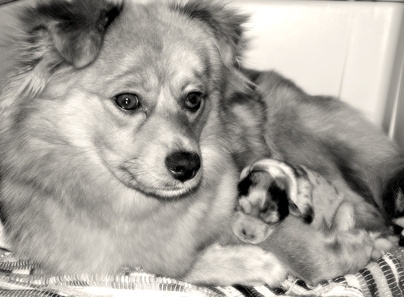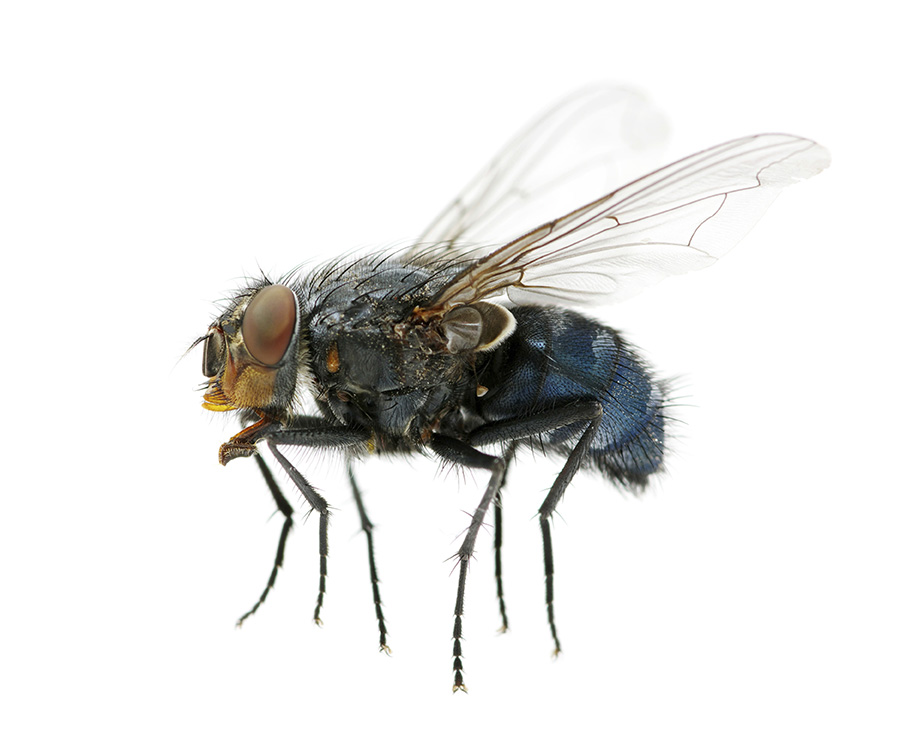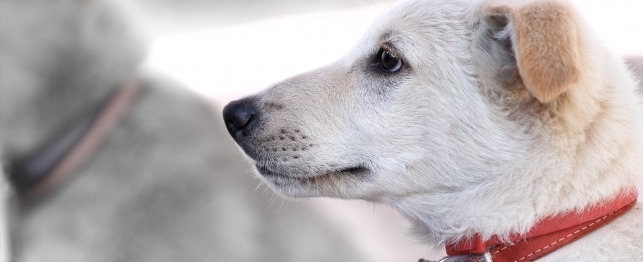For years Hollywood has portrayed motion-picture canines as animals whose motivations are based on human perceptions and values. Lassie saves a rabbit from death, for example, or Benji solves a crime, or Rin Tin Tin protects the fort from outlaws. These animal films are very entertaining, and the canine actors are extremely well trained, but they tend to give the viewer a distorted, unrealistic picture of a dog's ability to think and reason.
This misrepresentation of canine behavior is the do wnfall of many dog owners and their unfortunate pets. A person who has never taken a dog training course or read a good training manual containing information on canine behavior very often expects from his or her dog things that canines are unable to do. Such a person may teach even those behaviors that the dog is capable of carrying out in a confusing and haphazard manner. Many poor dogs are then unjustly labeled, spiteful, stupid, stubborn, and sometimes just plain bad. The proper label is ignorant, and it belongs to the owner, not the dog. Whenever you try to evaluate canine behaviors through a human point of view, you will misinterpret them.
All but the very worst anthropomorphic dog owners can be helped if they make a valid effort to understand their dogs. It is not a crime to be anthropomorphic, but it should be a crime if you own a dog and make no effort to understand him. Some aspects of anthropomorphism are harmless to the dog - and can even be enjoyable. For example, giving your dog a special dinner on his birthday or filling a Christmas stocking with dog toys and treats is not detrimental; What dog owners should learn about anthropomorphism should directly concern the dog's training, especially when it comes to good timing and fair corrections. For example, owners often correct their dog based on a "guilty look" on the dog's face, assuming he "knows" he was wrong. The dog doesn't know, any more than he knows it is his birthday or Christmas.
Here is another good example of anthropomorphism. Many dog owners - especially owners of younger dogs - experience a chewing problem at some point. Many calls come in on a regular basis from frustrated owners who say that their dogs chew furniture, rugs, shoes, and the like when left alone in the house. They say that they have tried everything. "He knows he has done wrong," they say. When asked what they have done to correct the dog, they say, "I holler at him and show him what he chewed. I tell him he is bad, and I smack him with the newspaper."
This procedure is usually repeated many times while the dog continues to destroy the house. Eventually the time arrives when the owner comes home and the dog runs and hides. Some dogs may even stand and shiver with a terribly "guilty look" on their face. Then, periodically, the owner will come home and not find a mess. The owner will be happy and will praise and pet the dog. The dog will respond to the happy sound and good-feeling rubs with a wagging tail and a happy appearance.
This cheerful behavior, unfortunately, reinforces in the owner's mind that the dog knows that avoiding chewing is "right" and that chewing up the house is "wrong." "He's just a bad dog," the owner thinks or "He's really spiteful. He wants to get even with me for leaving him home." These statements are all based strictly on human emotions and a human perspective. Owners such as these are being anthropocentric. They view everything in terms of human experience and human values.

 Summer Paw Pad Injuries & Paw Pad Care for Dogs
Summer Paw Pad Injuries & Paw Pad Care for Do
Summer Paw Pad Injuries & Paw Pad Care for Dogs
Summer Paw Pad Injuries & Paw Pad Care for Do
 How to Know If a Dog Is Going to Have Puppies
How to Know If a Dog Is Going to Have Puppies
How to Know If a Dog Is Going to Have Puppies
How to Know If a Dog Is Going to Have Puppies
 Introducing A New Puppy to Other Pets
Introducing A New Puppy to Other Pets
Introducing A New Puppy to Other Pets
Introducing A New Puppy to Other Pets
 Protect Your Dog From These Hidden Hot
Summer means ice cream, hikes in th
Protect Your Dog From These Hidden Hot
Summer means ice cream, hikes in th
 Puppy Collars - Choosing a Collar for Your Puppy
Puppy Collars - Choosing a Collar for Your Pu
Puppy Collars - Choosing a Collar for Your Puppy
Puppy Collars - Choosing a Collar for Your Pu